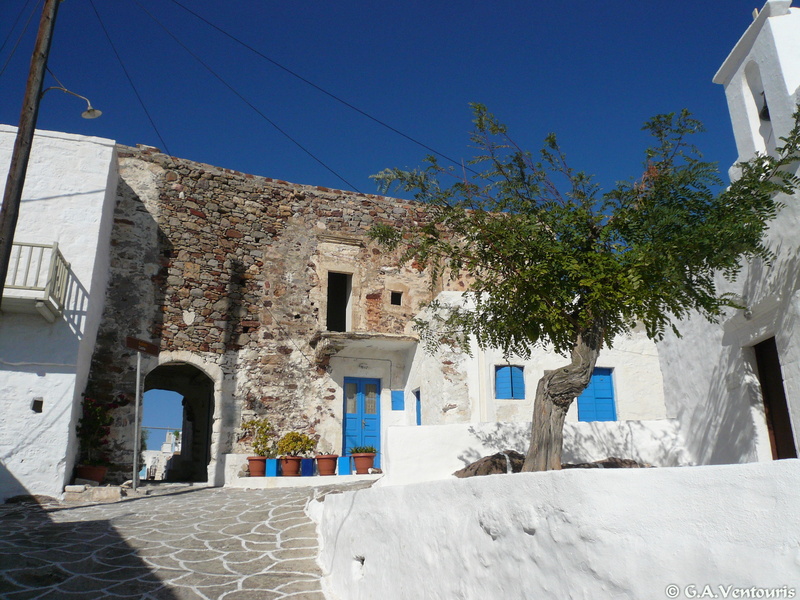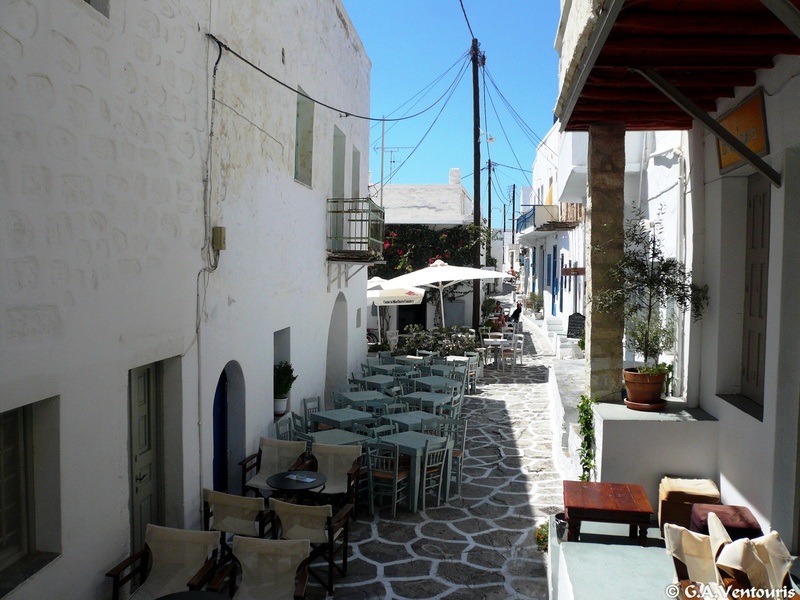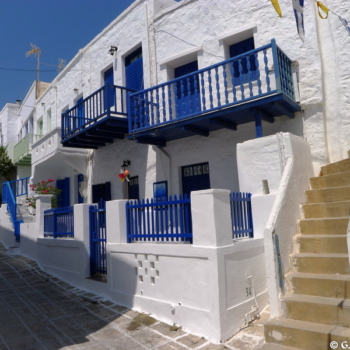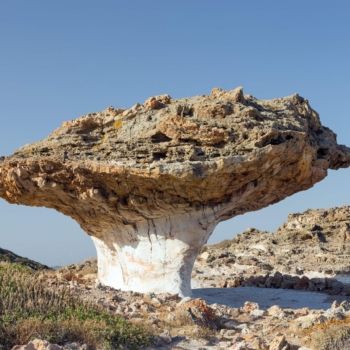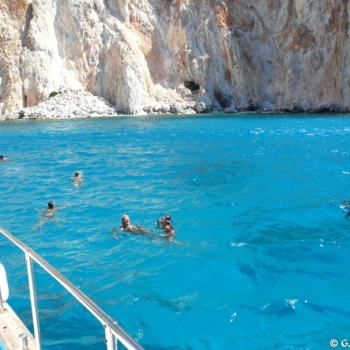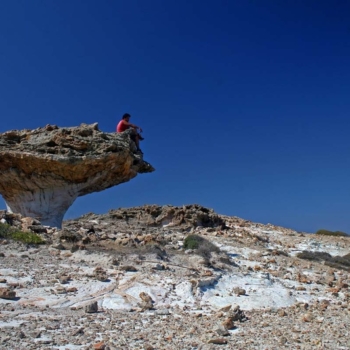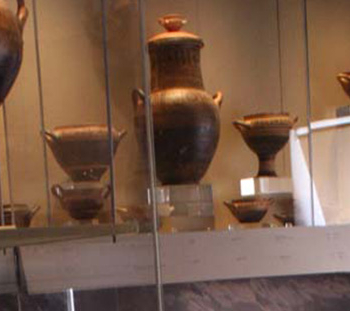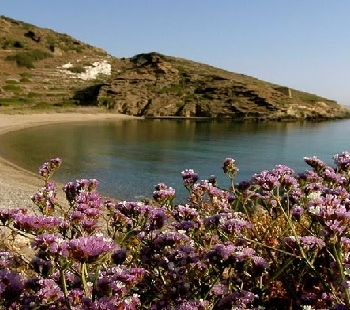Chorio (and not Chora) is a purely traditional settlement. With whitewashed houses leaning one against the other like good neighbours, low terraces where the tired passersby find a rest, yards sprayed with the smell of basil, arches, shaded passageways and winding alleys with whitewashed joints, Chorio is a perfect sample of the Cycladic architecture.
In Chorio there is a Citizens’ Service Centre, a regional medical centre, a pharmacy, a dental clinic, a police station, a post office and a postbank, an ATM and a number of stores and businesses to cover every need for accommodation, transportation (inside and outside Kimolos), food, entertainment, clothing, as well as gifts, souvenirs and local products’ shopping.
KASTRO (CASTLE)
The danger that Francs, Venetians, pirates of any nationality and Turks represented for the locals has left a trace visible to date: it is the Medieval Kastro of the 14th or the 16th century, with square shape and two house complexes, with one, Exo Kastro (Outer Castle), surrounding the other, Mesa Kastro (Inner Castle). Among them there was a narrow perimeter road while the outer wall of Exo Kastro houses constituted at the same time the castle’s wall, playing a major defensive role. Kastro was once the only settlement in the island and after the liberation from the Turks it extended over the surrounding area of Kastro, current Chorio.
The church of Gennisi tou Christou (1592) and one of the two entrances (western) are preserved in Mesa Kastro, which is now ruined. In Exo Kastro quite a few houses are still inhabited, though altered, , while its two gates are still preserved: Kato Porta in the south, on the street of Agora (Market) and Pano Porta on the eastern side. The dates 1650 and 1646 are respectively inscribed on the two gates, in respect of the time when they were repaired, that was after a pirate raid in 1638 when Kastro was set on fire .
Info
Lintels with coats of arms and dates are preserved on the walls of houses, which adjoin the interior perimeter road.
